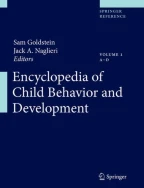
Albert Bandura’s social cognitive theory conceptualizes cognitive, vicarious, self-regulatory, and self-reflective processes as they relate to human motivation and behavior.
Social cognitive theory was founded on the social learning theory proposed by N. E. Miller and J. Dollard in 1941 [8]. Early social learning theorists were heavily influenced by behaviorism and drive reduction principles. In 1963 Albert Bandura and Richard Walters extended social learning theory by stressing that observational learning is a natural occurrence. They also stressed that reinforcement controls performance, not learning, and that learning can happen vicariously. Bandura’s work also developed the importance of self-beliefs in learning behaviors. With the 1986 publication of his book Social Foundations of Thought and Action: A Social Cognitive Theory [2], Bandura made a clear distinction between his theory, which emphasizes the important role of.